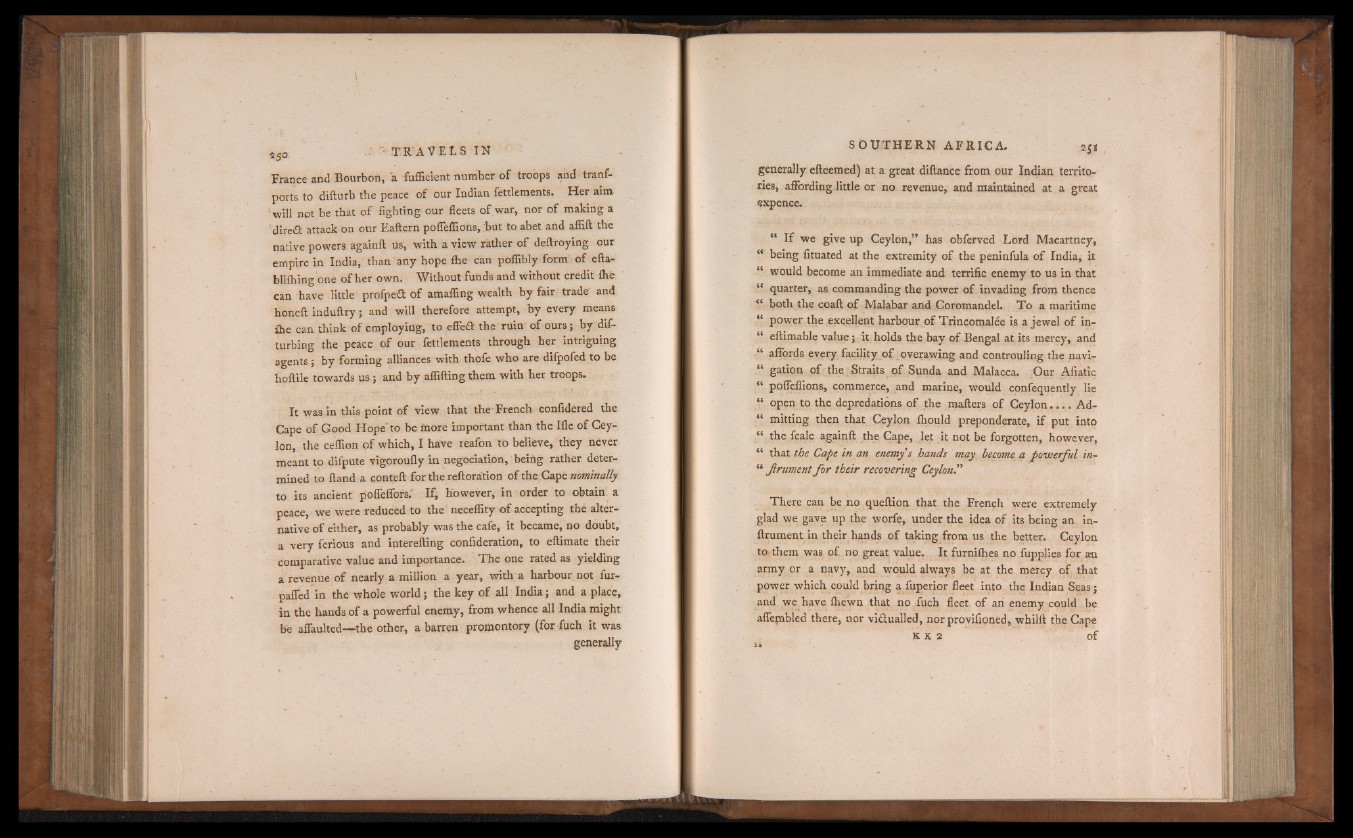
France and Bourbon, a fufficient nuniber of troops and transports
to difturb the peace of our Indian fettlements. Her aim
■will not be that of fighting our fleets of war, nor of making a
diredt attack on our Eaftern pofleflions, but to abet and aflift the
native powers againft us, with a view rather of deftroying our
empire in India, than any hope ihe can poflibly form of efta-
bliihing one of her own. Without funds and without credit ihe
can have little profpedt of amafling wealth by fair trade and
honeft induftry ; and will therefore attempt, by every means
ihe can think of employing, to eflfed the ruin of ours ; by disturbing
the peace of our fettlements through her intriguing
agents; by forming alliances with thofe who are difpofed to be
hoftile towards us ; and by afliftingthem with her troops.
It was in this point of view that the French- confidered the
Cape of Good Hope'to be more important than the Ifle of Ceylon,
the ceflion of which, I have reafon to believe, they never
meant to difpute vigoroufly in négociation, being rather determined
to ftand a conteft for the reftoration of the Cape nominally
to its ancient poffeffors.' If, however, in order to obtain a
peace, we were reduced to the neceffity o f accepting thé alternative
of either, as probably was the cafe, it became, no doubt,
a very ferious and interefting confideration, to eftimate their
comparative value and importance. The one rated as yielding
a revenue of nearly a million a year, with a harbour not fur-
paffed in the whole world ; the key of all India ; and a place,
in the hands of a powerful enemy, from whence all India might
be affaulted— the other, a barren promontory (for fuch it was
generally
generally efteemed) at a great diftance from our Indian territories,
affording little or no revenue, and maintained at a great
expence.
" If we give up Ceylon,” has obferved Lord Macartney,
being fituated at the extremity of the peninfula of India, it
“ would become an immediate and terrific enemy to us in that
“ quarter, as commanding the power of invading from thence
“ both the coaft of Malabar and Coromandel. To a maritime
“ power the excellent harbour of Trincomalee is a jewel of in-
“ eftimable value; it holds the bay of Bengal at its mercy, and
■“ affords every facility of overawing and controuling the navi-
gation of the Straits of Sunda and Malacca. .Our Afiatic
“ poffeflions, commerce, and marine, would confequently lie
H open to the depredations of the matters of Ceylon. . . . Ad-
“ mitting then that Ceylon ihould preponderate, if put into
“ the fcale againft the Cape, let it not be forgotten, however,
“ that the Cape in an enemy s bands may become a powerful in-
“ Jlrument fo r their recovering Ceylon.”
There can be no queftion that the French were extremely
glad we gave up the worfe, under the idea of its being an in-
ftrument in their hands of taking from us the better. Ceylon
to them was of no great value. It furniihes no fupplies for an
army or a navy, and would always be at the mercy of that
power which could bring a fuperior fleet into the Indian Seas;
and we have ihewn that no fuch fleet of an enemy could be
affepibled there, nor vi£tualled, nor provifioned, whilft the Cape
K k 2 of